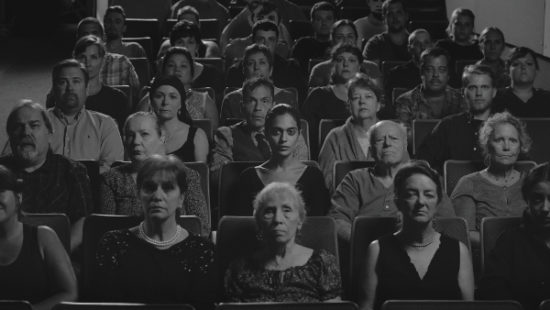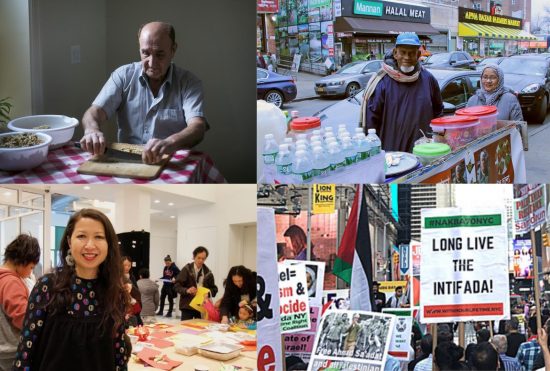That’s Bombing Your Own
With bombings in their own country and threat of travel ban and revocation of their TPS, how do Yemenis in the U.S. cope?
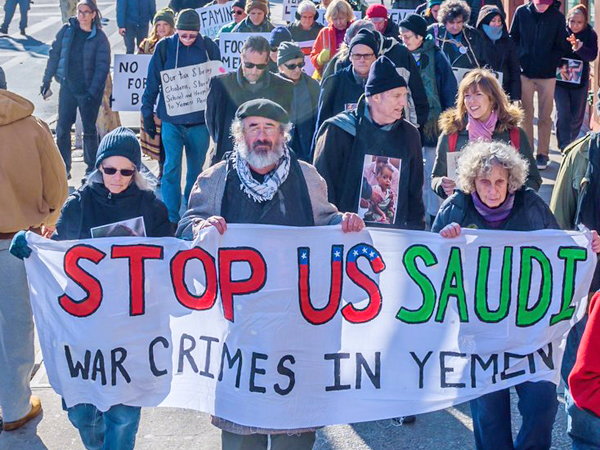
January 30, 2018
There are over 40 million immigrants in the United States and about a million of them come from countries the United States is currently bombing. Another 12 million immigrated from countries the U.S. is constantly threatening or is economically strangling.
These facts are not alarming when one learns that currently, the U.S. has a staggering 800 military bases overseas. To put that in perspective, according to the United Nations, there are 240 recognized countries and territories in the world, enough for about four U.S. military bases in each of these countries.
It’s surprising, yes. But when you comb through the 241 years since the foundation of the United States, it’s hard to find even half a dozen consecutive years during which the United States was not involved in some form of military conflict. According to the Center for Research on Globalization, the US has been at peace for only 20 years since it’s foundation. Pick any war in the last 200 years and there’s over a 90 percent chance the U.S. was involved in it.
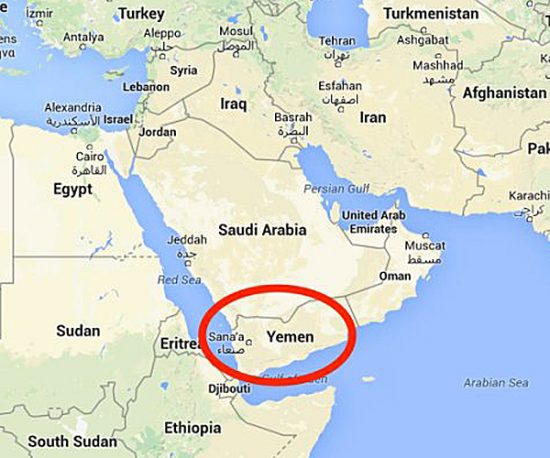 Today, thanks to technology and the birth of drones, warfare can be more clandestine and requires fewer troops and ground work. That’s why the three years (and counting) that the United States has been at war with Yemen are not at all discussed in the mainstream. The drone strikes in Yemen, which have killed tens of thousands of Yemenis and multiple U.S. citizens and military personnel, are wreaking havoc on a small country of just over 27 million people. One Yemeni civilian dies every day because of a cholera epidemic brought on by the war, not to mention the famine that the United Nations has declared to be one of the worst humanitarian crises in the world today.
Today, thanks to technology and the birth of drones, warfare can be more clandestine and requires fewer troops and ground work. That’s why the three years (and counting) that the United States has been at war with Yemen are not at all discussed in the mainstream. The drone strikes in Yemen, which have killed tens of thousands of Yemenis and multiple U.S. citizens and military personnel, are wreaking havoc on a small country of just over 27 million people. One Yemeni civilian dies every day because of a cholera epidemic brought on by the war, not to mention the famine that the United Nations has declared to be one of the worst humanitarian crises in the world today.
Meet Bushra Fusail, a Yemeni journalist and one of many thousands of Yemenis currently residing in the U.S. Bushra applied for asylum in New York when she found herself unable to return to Yemen after finishing a work project in Jordan.
Yemen requires special attention because of the nature of U.S. involvement in the ongoing war, and the way it has been shoved under the rug, rarely discussed. But while in the United States the mainstream media and politicians remain silent on a situation resulting in the death of 50,000 children, Yemenis in the United States are forced to come to grips with being in a country that is systematically destroying their own.
“Our country is destroyed and we want to try to be together, to be stronger. But the government is really investing in pulling people apart, keeping them from being united.” Bushra described the systematic effort to punish Yemenis for a war brought on by a foreign power. “When I left Yemen last, I had no idea I wasn’t going to come back,” she says. “I didn’t even say a proper goodbye.”
Yemen’s airports were bombed and sealed shut. There was no way home for Bushra, who last saw her family more than two years ago. She is one of an estimated 12,000 Yemenis admitted to the U.S. since 2015 after an intense vetting process and a myriad of restrictions and check-ins.
Twelve thousand is an embarrassingly low number considering the vast resources the U.S. state has at its disposal and the fact that it is responsible for much of the war in the first place.
Yemenis like Bushra who sought asylum in the United States face tremendous difficulties. They are vetted and constantly threatened with the fear of removal, and forced to reconcile this by pledging their loyalty and appreciation to the U.S. for accepting them – but denying their brothers, sisters, mothers, and even children the chance to escape war and seek refuge.
“We never imagined this would happen to our country,” Bushra explains. “We all wanted to leave the country because the only other place to go to is the desert. But even there, they would follow us with airstrikes. Everyone wanted their family to be united and to be safe and they, of course, have the right to ask for that.”
Children have been separated from their parents not only as a result of war, but as a result of the draconian immigration restrictions and unnecessary regulations imposed by the government. Restrictions and regulations that can be easily lifted or changed to allow families to reunite, to allow a child to live in peace with his mother.
Instead, the United States has chosen to further entrench Yemenis in the whirlwinds of the immigration system by issuing a travel ban that directly targets the Yemeni population, among others, three times! All three iterations of the ban bar Yemeni nationals from entering the US no matter what immigration visa they obtain.
Even those already in the U.S. under Temporary Protected Status (TPS), which was provided to Yemenis only after a hard fought campaign, are in grave danger as the Trump administration revokes these protections for immigrant communities one after the other. If their TPS were to be revoked, thousands of Yemenis would be forced to either leave the U.S. and apply for asylum elsewhere, or to stay in the U.S. without proper documentation, and thus face the dreaded immigration police, whose purpose is not so much to protect the community but to instill fear and the threat of violence.
“While protesting in Ferguson, Missouri, protesters noticed the tear gas being hurled at them often had instructions written in four different languages: English, Hebrew, Arabic, and Spanish. These same canisters were used against people protesting state brutality in Egypt, Palestine, and Mexico.”
These threats only scratch the surface of the injustices these communities are forced into. Almost every Yemeni still has family in the midst of war – if not surviving a drone strike or an air raid, and then struggling to survive the cholera epidemic and famine, which according to the UN is “the world’s worst humanitarian crisis today.”
Bushra, who hasn’t seen her family more than two years, is one of the thousands of people with family still in Yemen who are forced to live with the daily fear that they may never reunite. For Bushra, this fear became a reality when her father was hospitalized from a heart attack.
“He was so healthy, so healthy!” she explained. “He just had a small heart attack and died because they didn’t have medicine because of the siege. It’s a simple form of medication and he died because they couldn’t have access to it. That’s what people are dealing with.”
He passed away in the hospital because a U.S. backed Saudi embargo on Yemen prevented urgent heart medication from reaching the hospital.
In February of last year, people in New York City rose up to resist the siege on Yemen and the Muslim ban in what became known as the Airport Protests. Hundreds of Yemenis in NYC participated in a day-long Bodega strike, closing down their stores and rallying in Brooklyn for a speak-out followed by a public prayer. It was an inspiring and breath-taking action that brought together many different parts of the Arab and Muslim community as well as allies in the city.
“I had never seen anything like it here.” Bushra said about the strike. “It was like the 2011 uprisings in the Middle East but here, in a foreign country. The protest came from a place of pain. There is just so much pain.”
What happens to Yemen in this new year is dependent on many geopolitical factors, but actions like the Bodega strike and the airport protests against the Muslim Ban place pressure on those in power to address the crisis. There’s a lot that the average American can do to help the Yemenis living here in New York and abroad.
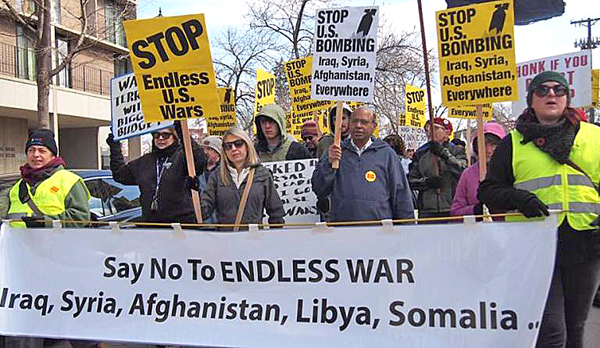
“Talk about it. Talk about it. Talk about it”, Bushra urges us. “Talk about it with people, with your representatives, with your neighbors. When I came here, no one knew what the hell was going on in Yemen and yet the U.S. was wholly involved in the war. There’s a kid dying every day – it’s your government! Its your country! We need to talk about it so people know what their country is doing.”
Talking about it is key and organizing against racist policies such as the Muslim ban is a large part of getting the word out about why Yemeni people are fleeing the country in the first place. It is imperative that we highlight the voices of people living in one of the wealthiest countries on the planet, and yet, whose lives are constantly thrown into chaos and uncertainty. They, whose countries and families are bombed to smithereens by none other than the powerful and wealthy country, the so-called beacon of democracy they call home.
But it’s important to remember that direct military intervention is just one part of the overall U.S. strategy overseas. The US exports arms and military technologies so that other warring nations can make use of the empire’s expertise. While protesting in Ferguson, Missouri after the police killing of Michael Brown, protesters noticed the tear gas being hurled at them often had instructions written in four different languages: English, Hebrew, Arabic, and Spanish. These same canisters were used against people protesting state brutality in Egypt, Palestine, and Mexico.
And where was the factory that produced these canisters located? Jamestown, Pennsylvania. How fitting that the war on civilians is manufactured in one of the 13 colonies, the heart of America.

